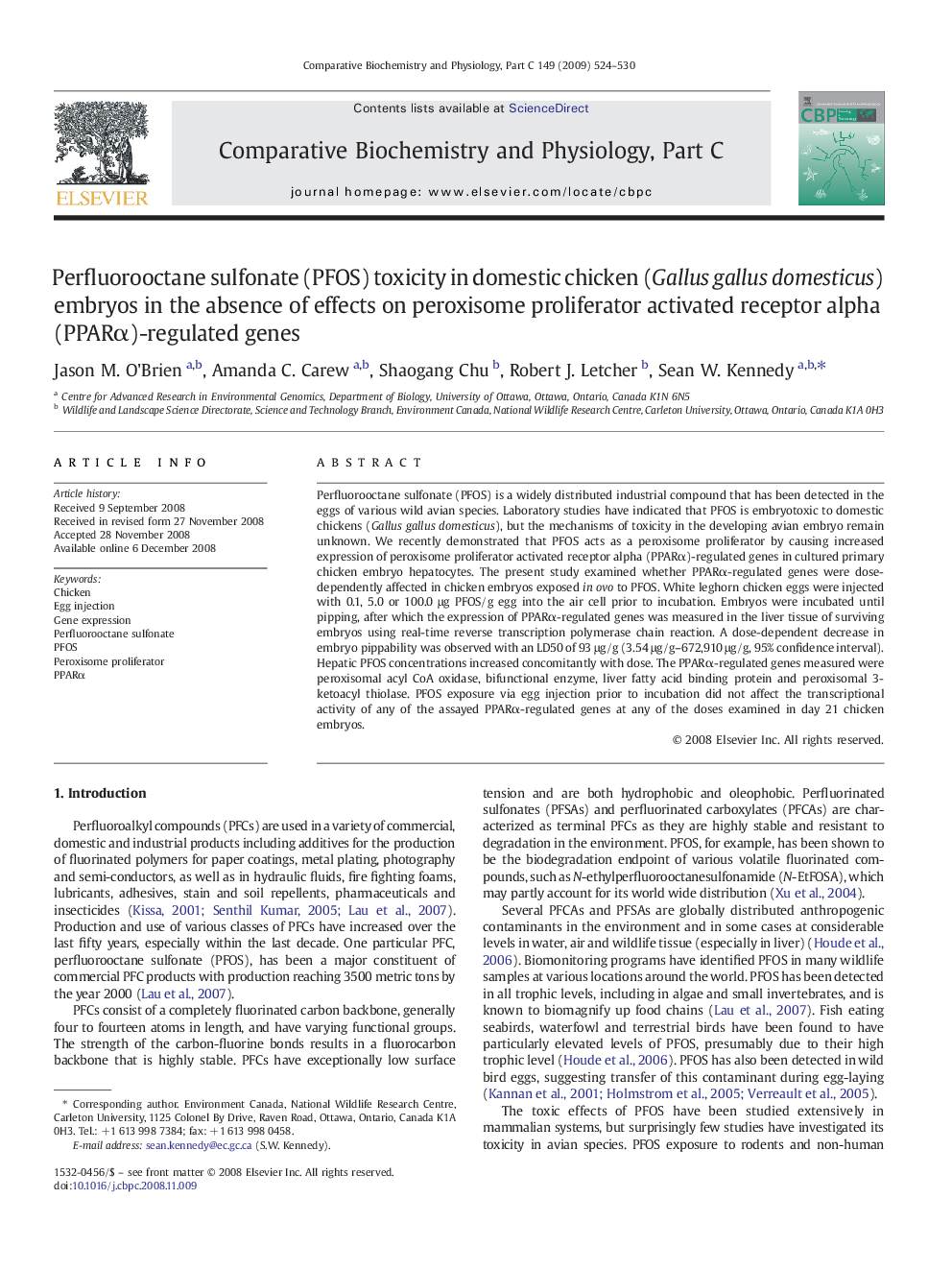| Article ID | Journal | Published Year | Pages | File Type |
|---|---|---|---|---|
| 1978000 | Comparative Biochemistry and Physiology Part C: Toxicology & Pharmacology | 2009 | 7 Pages |
Perfluorooctane sulfonate (PFOS) is a widely distributed industrial compound that has been detected in the eggs of various wild avian species. Laboratory studies have indicated that PFOS is embryotoxic to domestic chickens (Gallus gallus domesticus), but the mechanisms of toxicity in the developing avian embryo remain unknown. We recently demonstrated that PFOS acts as a peroxisome proliferator by causing increased expression of peroxisome proliferator activated receptor alpha (PPARα)-regulated genes in cultured primary chicken embryo hepatocytes. The present study examined whether PPARα-regulated genes were dose-dependently affected in chicken embryos exposed in ovo to PFOS. White leghorn chicken eggs were injected with 0.1, 5.0 or 100.0 μg PFOS/g egg into the air cell prior to incubation. Embryos were incubated until pipping, after which the expression of PPARα-regulated genes was measured in the liver tissue of surviving embryos using real-time reverse transcription polymerase chain reaction. A dose-dependent decrease in embryo pippability was observed with an LD50 of 93 μg/g (3.54 μg/g–672,910 μg/g, 95% confidence interval). Hepatic PFOS concentrations increased concomitantly with dose. The PPARα-regulated genes measured were peroxisomal acyl CoA oxidase, bifunctional enzyme, liver fatty acid binding protein and peroxisomal 3-ketoacyl thiolase. PFOS exposure via egg injection prior to incubation did not affect the transcriptional activity of any of the assayed PPARα-regulated genes at any of the doses examined in day 21 chicken embryos.
